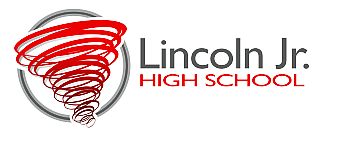 02/05/14 Lincoln Junior High Principal, Reid Gault, sees lots of positives in the new curriculum offerings they hope to incorporate next year. Gault briefed the Plymouth School Board of the proposed changes on February 4.
02/05/14 Lincoln Junior High Principal, Reid Gault, sees lots of positives in the new curriculum offerings they hope to incorporate next year. Gault briefed the Plymouth School Board of the proposed changes on February 4.
Gault said by combining the academic standards for language arts and social studies into Humanities, students can learn 21st century skills of collaboration, communication, critical thinking, problem solving and technology. He said, “It is a good way to increase the amount of reading, writing and discussing for students though a co-teaching situation.”
Gault said they will be using historical documents along with both fiction and non-fiction novels in the class. “The social studies teacher will have a reading and writing expert teaching right beside them.” Gault said. He added, “In language arts we can teach writing, making inferences, drawing conclusions, and understanding the author’s purpose.”
The class would be taught during a 90-minute period.
Gault thinks a curriculum addition of Introduction to Agriculture, Food and Natural Resources combines more information than what was traditionally offered in agriculture alone classes. Students taking the course would get high school credit if they successfully complete the class. It is a prerequisite to and a foundation for all other agriculture classes. The class would be taught by the same teacher that offers the class at Plymouth High School.
Topics to be covered include animal science, plant and soil science, food science, horticultural science, agricultural business management, landscape management, natural resources, agriculture power, structure and technology, leadership development, supervised agricultural experience and career opportunities. Gault said, “It will show viable options for careers right here in Plymouth and the surrounding area.”
A proposed elective course for eighth graders is Medical Detectives. The class would be in session for nine weeks. The course description reads as follows: “Students play the role of real life medical detectives as they analyze genetic testing results to diagnose disease and students DNA evidence found at a “crime scene”. They solve medical mysteries through hands-on projects and labs, investigate how to measure and interpret vital signs, and learn how the systems of the human body work together to maintain health.”
Seventh graders may be offered Science of Technology that includes studying with the “impact of technology of yesterday, today, and the future”. Gault said, “Students apply the concepts of physics, chemistry, and nanotechnology to STEM (science, technology, engineering , math) activities and projects, including making ice cream, cleaning up an oil spill, and discovering the properties of nano-materials.”
Gault said, these courses will challenge students like they have never been challenged before and let them explore their interests as they have never done before.”
Carol Anders Correspondent














